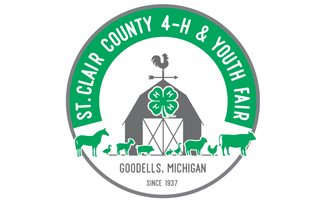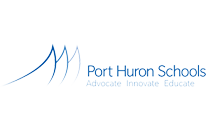Sponsored by: St. Clair County Community Mental Health
Every September for the past 28 years National Recovery Month has celebrated advances made by individuals in their behavioral health and substance use disorder recovery. During this month in particular we hope to increase the community’s awareness and understanding of how people with mental illness and substance use disorder can and do lead healthy and rewarding lives.
This year’s theme is “Join the Voices for Recovery: Invest in Health, Home, Purpose, and Community.” This theme highlights the importance of all areas of wellness in recovery – not just our physical and behavioral health, but our emotional, environmental, intellectual, social, and spiritual health as well.
St. Clair County Community Mental Health believe the best way to assist individuals in achieving success in all areas of wellness is through the behavioral health recovery model, which is not the same process we typically associate with recovering from a physical health problem, where recovery may be complete and permanent. Rather, it is about an individual with a mental illness staying in control of his or her life in such a way that they are able to live, work, learn, and participate fully in the community in spite of having a mental health challenge. It means focusing care on supporting recovery and building resilience, not just on managing symptoms.
In terms of treatment this means employing evidence based practices whenever possible. EBPs are focused interventions that use the most current and valid research findings as the basis for clinical decisions. SCCCMH introduced its first EBP in 1994 and today offers 26 different EBPs designed to support and assist individuals in their recovery.
Despite the availability of recovery focused treatments, many individuals who would benefit from behavioral health treatment continue to go untreated. In the extreme, this can contribute to suicidal behavior. Suicide Prevention Week, Sept. 9 to 15, creates awareness around the issues of suicide prevention, specifically how you can help individuals who may be considering suicide and how to talk about suicide with them without increasing the risk of harm. This year the St. Clair County Suicide Prevention Committee is sponsoring two free presentations by nationally recognized suicide survivor and advocate Kevin Hines on Tuesday, Sept. 11. The first presentation, from 3 to 4:30 p.m. at the Municipal Office Center auditorium in Port Huron, focuses on the importance of self-care for professionals. Interested individuals can register by calling (810) 395-4343. The second presentation, at 7 p.m. in the Port Huron High School auditorium, features Kevin’s personal story and a live panel discussion with local officials addressing the risks of suicide. No registration is necessary to attend.
Also, every October the St. Clair County Community Services Coordinating Body’s Suicide Prevention Workgroup sponsors the Walk 2 Remember, Walk 2 Prevent event to draw attention to the issue of suicide and to raise funds to benefit the local Survivors of Suicide support group, the SOS Memorial Garden, and suicide prevention efforts in St. Clair County. This year’s walk is Sunday, Oct. 14 at East China Park. To register go to https://walk2remember.myevent.com/.
Approximately 45,000 people die by suicide in the United States every year. In St. Clair County since 2011 there have been approximately 23 deaths per year by suicide, on average almost one every two weeks. Suicidal thoughts can affect anyone regardless of age, gender or background and often result from mental health conditions that affect people when they are most vulnerable. Among the warning signs are threats or comments about killing oneself, increased alcohol and drug use, social withdrawal, dramatic mood swings and saying goodbye to friends and family.
If you believe someone you know is showing warning signs don’t be afraid to ask them if they are having thoughts about suicide. Ask what you can do to help without debating whether suicide is right or wrong, without trying to convince them any delusions or hallucinations they are having are not real, and without arguing, threatening, or raising your voice. If they ask for something, provide it as long as the request is safe and reasonable.
Both National Recovery Month and Suicide Prevention Week remind us of the importance of behavioral health recovery and that individuals with mental illness can and do live healthy and rewarding lives.









